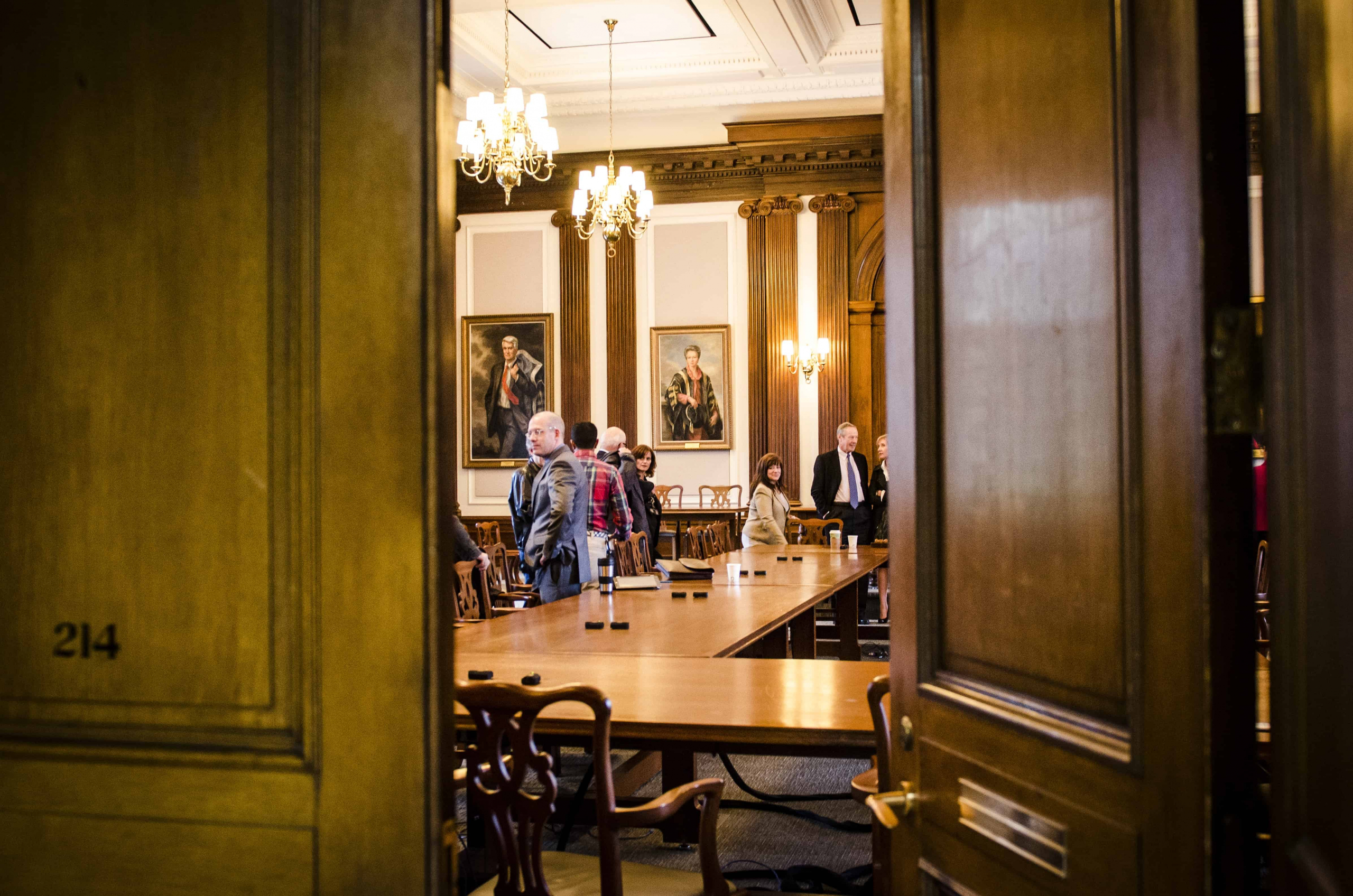In a surprise move, the university’s Governing Council on Thursday discussed the referenda supporting the diversion of UTSU fees to certain college and faculty councils, following a request by student governor Aidan Fishman.
Two meetings for discussion between student leaders from the UTSU, EngSoc, and the TCM are scheduled to take place on May 30 and June 6 respectively. Provost Cheryl Misak said she was looking for an impartial faculty member with expertise in constitutional law to facilitate the discussion between the disputing parties. Fishman, a Trinity College student, asked the Council to call a special meeting of the University Affairs Board to consider the topic of fee diversion following those scheduled discussions.
In an email sent last night to all governors on behalf of seven of eight student governors, Fishman detailed their concerns with the administration’s response to fee diversion so far. Fishman said his inbox had been “flooded” with concerns from students who did not understand the administration’s decision not to put fee diversion on the agenda of UAB’s May 28 meeting.
Misak responded to Fishman’s concerns, saying that the Council did not have the authority to call a UAB meeting. However, after discussion between a number of governors present, Misak agreed to call a special informational session of the Governing Council meeting between June 6 and June 26 at which UTSU, EngSoc and the TCM would be invited to make their case to the Council. She stressed that this session would be only informational, and that the Council would not make any decisions.
UAB Chair Elizabeth Vosburgh explained after the meeting that she could call a UAB meeting in consultation with the agenda committee of the Board. She indicated that she would be willing to do so only after the procedural and legal concerns around fee diversion had been resolved. Vosburgh was on the UAB during the APUS vs. EPUS & UTMSU case, which has been cited as legal precedent by union leaders in the past, and which resulted in the UAB’s decision on fee diversion being reversed in court.
Concerns about a potential legal fight were prominent in the discussion at the meeting, with Misak saying, “We do not want to be in court.” Both provost and U of T president David Naylor argued that under current procedures there was no way to approve fee diversion with Naylor saying, “In policy there’s no way to do it.”
Misak stressed that policies could be changed, but that such a change would need to come from the administration, and she could not recommend that Governing Council amend policy without due consideration. Update: Misak sent a letter to the leaders of the TCM, EngSoc, and UTSU Friday, further clarifying her position on why she “cannot simply divert fees from UTSU.” Misak stated that there would need to be a policy change in which the Governing Council gives the Provost a mandate to implement fee diversion. Misak warned the UTSU that if online voting is not implemented for the 2014 elections, she will withold fees from the union.
Misak went on to say, “There is no expiration date for these referenda. They will be discussed until there is some resolution.”
Some governors were eager to see a resolution of the situation that would take effect for the coming academic year. Professor Michael Marrus stressed that the time horizon for students is short, with a new group of students to come in next year, and many who have sought a resolution to graduate.
The Governing Council’s decision marks a departure from previous statements by the administration. In an email to The Varsity earlier today, provost Misak and vice-president, students Jill Matus wrote:
“At present, the Provost believes the issues surrounding the referenda should be dealt with by the student societies themselves through further dialogue. Much will depend on the facts as they evolve, and the Provost will not comment further on these issues at the present time.”
Faced with questions from governors at the meeting however, Misak outlined her position saying that she felt there were ultimately three options. The first, mediation amongst student societies. Second, the provost withholding fees from UTSU, which she said would only be done under extreme circumstances. Third, she said that Governing Council could elect to change it’s own procedures to permit fee diversion.
The provost stressed that her office had been closely monitoring the situation throughout the year and that it was very important. In a letter to UTSU dated May 17 she commended them on agreeing to implement online voting and proxy reform before December 31st saying that, “this is an issue that cannot be ignored.”
Asked outside the meeting about whether he planned to attend the special informational session Naylor smiled and said, “We are very happy to watch.”
With files from Vipasha Shaikh.
Correction: May 24, 2013
An earlier version of this article referred incorrectly to Naylor’s “We are very happy to watch” as a general comment on the student conflict. The comment was made specifically in regards to the special informational session.


